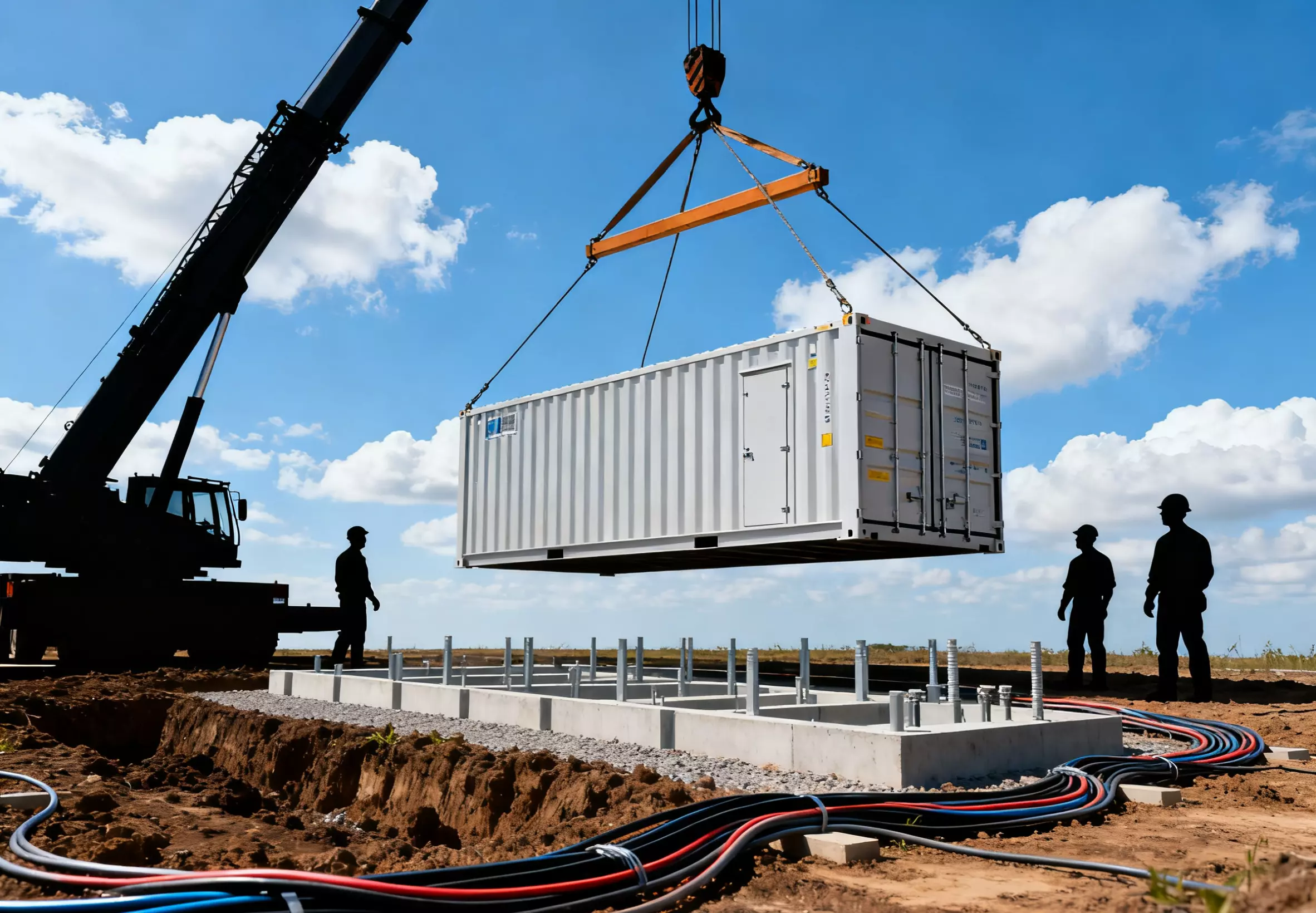2025-11-03
Whatever the case may be, energy storage devices are at the center of the action in wind and solar grid regulation, peak shaving, valley filling, and energy consumption optimizing for industrial users. The trend of massive energy storage, in the order of 50MW, has been taking place, and thus the capital costs attracted the industry's interest. So what is the price of a 50MW energy storage plant? Investment in energy storage will be the topic of thorough analysis in this paper including composition, operation and maintenance, lifecycle, and cost trends.

The value of an strength storage device is no longer a single source, however as an alternative consists of a couple of parts, inclusive of preliminary investment, operation and maintenance, thing replacement, and financing costs. The funding in every stage immediately determines the common undertaking price and monetary feasibility.
Initial Investment Costs Initial funding normally bills for greater than 70% of the whole cost, which include batteries, energy conversion structures (PCS), device balancing (BOS), and set up fees.
Battery Costs: The Core of System Costs Batteries account for a vast component of the price of electricity storage projects. Currently, the mainstream applied sciences are lithium iron phosphate (LFP) and ternary lithium (NCM). LFP (Liquid Photovoltaic) batteries dominate large-scale electricity storage tasks due to their excessive safety, lengthy lifespan, and cost-effectiveness.
Currently, the market rate for power storage batteries is about $100-$300 per kilowatt-hour. For example, in a 50MW/50MWh system, the battery fee on my own may want to attain $5 million to $15 million.
Power Conversion System (PCS): The Bridge for Energy Transfer
The PCS is accountable for changing DC to AC electricity and is a key issue for environment friendly machine operation. Its fee is typically $50-$150 per kilowatt, corresponding to about $2.5 million to $7.5 million for a 50MW system.
Body System Balancing (BOS): Ensuring Stable System Operation
This consists of the Battery Management System (BMS), cooling and hearth suppression systems, monitoring and conversation systems, cabling, and defensive structures. This element generally debts for 20%-30% of the whole cost, about $1 million to $3 million.
Installation and Construction Costs: Large-scale strength storage tasks have excessive necessities for development stipulations and technology. Installation charges common $50-$100 per kilowatt, totaling about $2.5 million to $5 million.
Summary: Overall, the initial funding price of a 50MW electricity storage machine is about $11 million to $30 million.
After the energy storage system is built, continuous operation and maintenance investment is required to ensure stable operation and long-term benefits.
Fixed Operating Costs: Mainly include land rent, insurance, taxes, etc., typically $50,000 to $150,000 per year.
Variable Operating Costs: Cover energy loss and cooling system power consumption. Energy storage energy loss is approximately 5%-15%, calculated at an electricity price of $0.1/kWh, with annual loss costs around $250,000.
Maintenance Costs: Include system testing, equipment repair, cell monitoring, software upgrades, etc., averaging $500,000 to $1 million per year.
Although operation and maintenance costs account for a small percentage of the total cost, they significantly impact system lifespan and profitability, making them an indispensable part of energy storage investment.
The economic assessment of energy storage projects should be based on their entire life cycle. Taking lithium battery energy storage as an example, the system lifespan is typically 10-20 years, after which cell replacement is required.
Battery replacement costs: Approximately 80%-100% of the initial battery investment, i.e., $5 million to $15 million.
Other component replacements: Such as inverters, cooling systems, BMS, etc., require partial updates during their life cycle, accounting for approximately 20%-30% of the total cost.
If calculated over a 20-year cycle, the total life cycle expenditure for a 50MW energy storage system could reach $20 million to $50 million.
The majority of large-scale energy storage projects are set up through financing. The actual cost is affected by financing interest rates, the duration of repayment, and policy subsidies.
If a 5% interest rate is used with a 10-year loan, the financing costs could lead to an increase of around 30% to 50% in the total project cost.
Nonetheless, it is important to recognize that the electricity spot market and capacity compensation mechanisms have improved, and thus, the project investment payback period is also continuously shortening.
The energy storage industry has experienced a foreclosure market trend in cost reduction over the past few years. Data indicates that the price of lithium batteries has gone down by approximately 40% in relation to 2020. With the gradually maturing of new technologies such as sodium-ion and solid-state batteries, the levelized cost of electricity (LCOS) of energy storage systems is likely to go down further.
Furthermore, modular and integrated energy storage systems are becoming a new direction for the industry—through standardized cabinet design and intelligent EMS management platforms, project installation cycles are shorter, and overall costs can be further reduced by 10%-20%.
Overall, a 50MW energy storage system is a fundamental energy asset with high initial investment and long-term returns. Although the initial cost is high, its comprehensive value in grid regulation, energy arbitrage, and carbon emission reduction is being increasingly recognized by companies and investors.
LZY Energy has long been deeply involved in the energy storage field, committed to providing global customers with full-scenario solutions from energy storage batteries and integrated systems to EMS energy management. Whether it's large-scale grid-scale energy storage or commercial and industrial energy storage systems, we can tailor high-security, high-return energy storage deployment solutions for our clients.

European 4MWh Energy Storage Project

Shanghai Huijue Solar Carport Project

Small Commercial Energy Storage System Project for Singapore Manufacturing Companies

China Hunan Province Scenic Area Microgrid System Project

Northern Europe Commercial Center Outdoor Cabinet Industrial and Commercial Energy Storage System Project